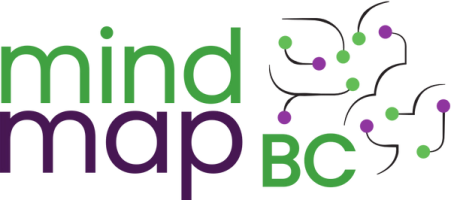Brett Mason Counselling
Summary
Individual counselling
Support groups
Addictions counselling
- Family counselling
FNHA
Sliding Scale Available
- $150 (Individual)
- $175 (Family)
Youth
2S/LGBTQ+ Affirming
- In-person
Remote services
Online resource
Gender-affirming, intersectional feminist, anti-racist counselling, clinical supervision, education. Individual and family counselling, ages 12 and up. Approaches used:
-CBT
-Narrative therapy
-trauma-informed care
-psychoanalytic theory
-somatic therapy
-critical race theory
-health at every size
Provider of Hormone; Surgical Readiness Assessments. Able to provide child and youth gender-affirming assessments as well in collaboration with Dr. Wallace Wong.
Teaches training in gender-affirming practice for other counsellors and healthcare providers. Teaches classes for community members such as “Expanding your 2SLGBTQIA+ Family: Exploring Options” which goes over options for 2SLGBTQIA+ who want to have children.
Want to learn more about this service’s work with Two-Spirit, trans, LGBQ+ people?
We invite all service providers listed on MindMapBC to answer the following questions. These questions were developed in collaboration with community members, researchers, and mental health and other service providers. They're intended to help us understand what a service provider or organization is doing to affirm and support sexual and gender diverse service users.
See below for responses for this listing.
Want to learn more about our screening questions and filters?
Are the forms used in your practice inclusive of various sexual orientations and gender identities (e.g. opportunities to fill in different pronouns etc.)? Yes!
2) Do you collect and use preferred names (rather than legal names) for all
communications? Yes!
3) Do you and your colleagues have experience providing services that support clients with navigating gender dysphoria*? *TransCareBC describes gender dysphoria as a term "intended to describe the distress some trans people experience with relation to their gender identity, particularly if they would like to transition but have not yet done so" Yes, I am trans and have worked with thousands of trans and Two-Spirit people over the last many years. I used to work at Trans Care BC and QMUNITY prior to going into private practice counselling.
4) Please tell us how equipped you feel to support a client in determining if/when their mental health symptoms are related to their gender-related experiences or other factors? Very well equipped.
5) Do you/your colleagues understand the difference between gender dysphoria and mental health conditions/symptoms that are unrelated to gender dysphoria or distress? Yes
6) Do you and your colleagues have experience working with people who identify as living with a disability or chronic illness? Please tell us more about your experience and any training you have received. Yes, I am disabled personally. I used to work with the Disability Action Hall in Calgary, and I have received clinical supervision from Dr. Wallace Wong (psychologist) and Megan Sutherland (RCSW) about neurodivergence.
7) Are you and your colleagues comfortable asking relevant questions about gender identity and sexual orientation? Yes, I teach on these topics as well.
8) Do you offer Indigenous 2SLGBTQIA+ specific resources, for example Indigenous Elders or Knowledge Keepers? Yes, the trainings I offer include a significant focus on providing care for Two-Spirit people (including having a Two-Spirit scholar guest speaker), and I am connected with many Indigenous-specific resources to help my clients connect with other Indigenous people through resourcing.
9) Do you and your colleagues ask clients about pronouns and use them appropriately? Yes.
10) Are you and your colleagues aware of what specific barriers may exist for Two-Spirit, queer, or trans Indigenous individuals accessing your services? I try to be
11) Are you and your colleagues aware of what specific barriers may exist for 2SLGBTQIA+ individuals accessing your services? I try to be
12) Are you and your colleagues aware of what specific barriers may exist for trans individuals accessing your services? Yes
13) Are there clear anti-discrimination policies that include gender identity, gender expression, and sexual orientation in your organization or practice? Yes.
14) Are all individuals involved in service provision actively engaged in decolonizing their practices and/or organization? If yes, please type below what actions you and/or your organization are taking. I try to be. I provide pro-bono counselling and assessments every month to intersectionally marginalized people. I offer free spots in my trainings to Indigenous organizations, and other BIPOC organizations. I offer a sliding scale for all my services to make them more accessible. I participate in on-going learning and activism relate to anti-racism and decolonization.
15) Are all individuals involved in service provision actively engaged in anti-racist practices, policies, and systems in their care model? Yes.
Last updated: December 13, 2024
Request changes —

